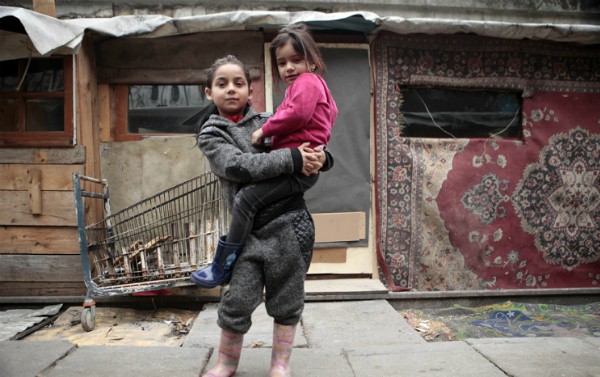
The Roma are the largest ethnic group in Europe without their own state, and are among the most vulnerable and marginalised. They have possibly the lowest educational attainment, the shortest life expectancy and their level of unemployment is significantly higher than any other comparable ethnic group in Europe.
In a recently-updated guide for Community Care Inform, Gabriela Smolinska-Poffley and Dragica Felja of the Roma Support Group provide essential information about Roma history, culture and tradition, to help social workers engage with Roma families in a positive way.
These are a few key points from the guide. Community Care Inform subscribers can read the full, in-depth guide on both Inform Adults and Inform Children.
Working with Roma through interpreters
When working with migrant Roma families the presence of an interpreter is often required in order to facilitate communication. Though this might look like a straightforward thing to do, it can prove to be a challenge in itself.
The key issues professionals should be aware of when working with interpreters are linguistic problems and the lack of Roma interpreters. Educational data gathered in the UK and in various countries across Europe shows that the Roma community has the lowest achievement rates. In addition, there are still significant numbers of Roma who are either illiterate or semi-illiterate.
Discrimination within the education sector and/or lack of access to quality education and limited contact with public services has had a great impact on vocabulary and understanding of various concepts. Therefore, professionals working with Roma families should be aware that concepts (such as parenting mentoring, assessment, care plans, support plans, direct payments, or mental capacity) and professionals’ roles and remit (for example, social workers, guardians, foster carers) need to be explained in order to avoid any misunderstandings.
Barriers in accessing health services
Roma Support Group casework suggests that Roma individuals in the UK encounter difficulties in accessing health services due to lack of documentation or lack of understanding of health system procedures. There have been situations in which Roma families have been unable to register with GPs because they were unable to provide official documents, including proof of address and children’s immunisation records. In other cases, Roma families have been unsuccessful in registering with a GP because their nearest surgery was not accepting new patients, and they did not understand that it was possible to register with a different surgery.
In terms of health issues, much of the research on the UK Roma population describes their health status in conjunction with that of gypsies and travellers. While these groups are culturally distinct, gypsies, Roma and travellers do exhibit certain similarities in health status, including:
- Higher rates of long-term illness, health problem or disability (European Commission, 2014; Parry et al, 2004).
- More problems with anxiety and depression (European Commission, 2014; Parry et al, 2004).
- Evidence of lower childhood vaccination rates, although these studies are too small in scale to be representative (European Commission, 2014).
Although these trends point to common challenges in accessing appropriate health services, general statements regarding gypsy, Roma and traveller health may oversimplify the unique challenges that each group encounters in interacting with health service providers. In the case of the Roma, their language, culture and length of residency in the UK differs from those of gypsies and travellers, making language barriers and lack of prior experience in UK health systems important factors in determining the ease with which they are able to access services.
Working with Roma families in a safeguarding context
Many Roma parents have excellent parenting skills. However, some Roma families might struggle and would benefit from parenting classes. When offered appropriately, parents are happy to participate and use acquired skills. The terms “parenting classes/parenting mentoring” are very confusing and often misunderstood by parents. For this reason, it is worth explaining which topics would be covered and how they would help.
However, many Roma families distrust social care professionals due to experiences in their countries of origin. For example, programmes broadcast in autumn 2012 on Slovak mainstream television portrayed British safeguarding practices as unfair and negative towards Roma. This had a negative impact on engagement with children’s services.
In February 2013, during the National Roma Network meeting, this issue was noted as one of the main concerns for the Roma in the UK. The minutes of the meeting recorded:
“The issues of Roma children being taken into care was raised again. It continues to cause issues in local authority areas and members reported that Roma families were living in fear. The issues seem to stem from the criteria that social services use to determine whether a child is at risk and it was felt that the criteria… do not take into account the cultural difference of Roma families.”


 A trauma-informed approach to social work: practice tips
A trauma-informed approach to social work: practice tips  Problem gambling: how to recognise the warning signs
Problem gambling: how to recognise the warning signs 




 Find out how to develop your emotional resilience with our free downloadable guide
Find out how to develop your emotional resilience with our free downloadable guide  Develop your social work career with Community Care’s Careers and Training Guide
Develop your social work career with Community Care’s Careers and Training Guide  ‘Dear Sajid Javid: please end the inappropriate detention of autistic people and those with learning disabilities’
‘Dear Sajid Javid: please end the inappropriate detention of autistic people and those with learning disabilities’ Ofsted calls for power to scrutinise children’s home groups
Ofsted calls for power to scrutinise children’s home groups Seven in eight commissioners paying below ‘minimum rate for home care’
Seven in eight commissioners paying below ‘minimum rate for home care’
 Facebook
Facebook X
X LinkedIn
LinkedIn Instagram
Instagram
Comments are closed.